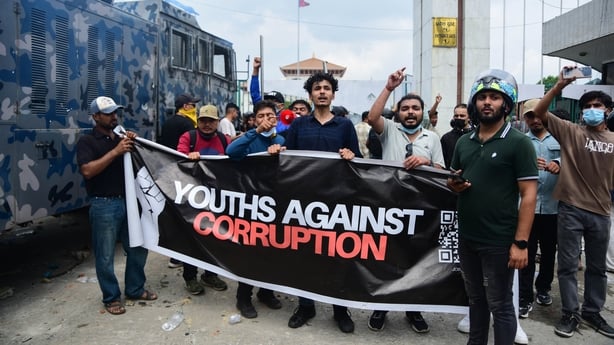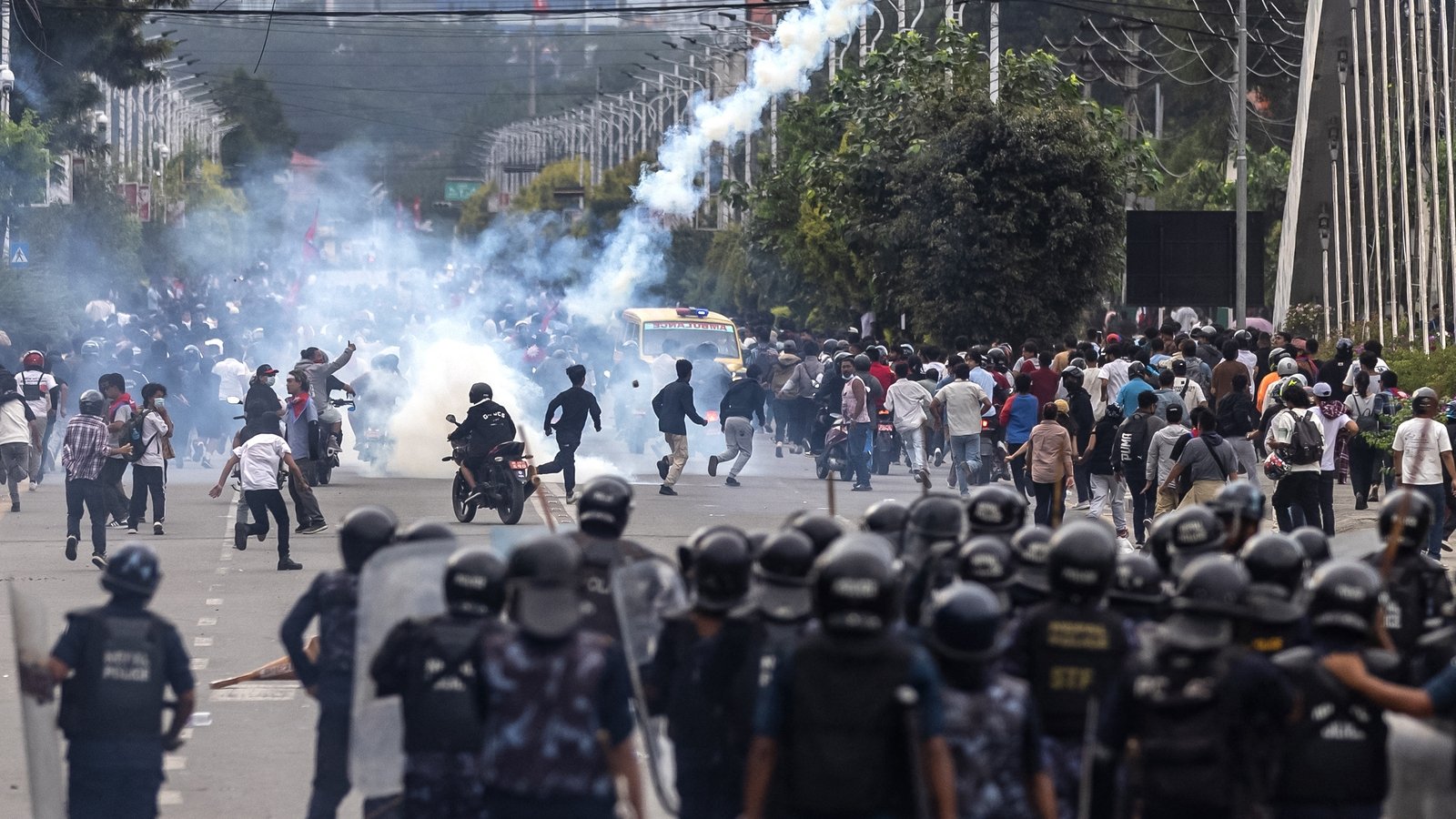Nepal has lifted a social media ban less than a day after anti-corruption protests that were triggered by the move led to the deaths of 19 people, a government minister said, while a curfew was imposed in the country’s capital, Kathmandu.
The government rolled back the social media ban imposed last week, Cabinet spokesperson and Communications and Information Technology Minister Prithvi Subba Gurung said.
The decision came after 19 people were killed and more than 100 injured in the so-called ‘Gen Z’ protests yesterday against widespread corruption.
The protests were triggered by the ban.
“We have withdrawn the shutdown of the social media. They are working now,” Mr Gurung told Reuters.

Organisers of the protests called them ‘demonstrations by Gen Z’
Authorities have also imposed an indefinite curfew within the Kathmandu city area, Kathmandu district administrator Chhabilal Rijal said, a move aimed at stopping more protests.
“No protests, mass gatherings, meetings or assemblies of people will be allowed during the curfew,” he said in a notice.
This comes after protesters called for people to participate in condolence meetings in memory of those killed in yesterday’s protests.
In neighbouring Lalitpur district, authorities imposed a curfew until midnight (7.15pm Irish time).
Prime Minister KP Sharma Oli said he was saddened by the incidents of violence due to the “infiltration from different selfish centres”.
The government would pay relief for the families of the dead and provide free treatment for the injured persons, he added.
“An investigation panel will be set up to find out the causes, assess losses and suggest measures within 15 days to ensure that such incidents are not repeated in future,” Mr Oli said in a late night statement.
Organisers of the protests, which spread to other cities in the Himalayan country, have called them “demonstrations by Gen Z”.
They say the protests reflect young people’s widespread frustration with the government’s perceived lack of action to tackle corruption and boost economic opportunities.
The government last week decided to block access to several social media platforms, including Facebook, a decision that fuelled anger among the young.
Officials said the shutdown was for those social media platforms which had failed to register with the government amid a crackdown on fake IDs, misinformation and hate speech.

